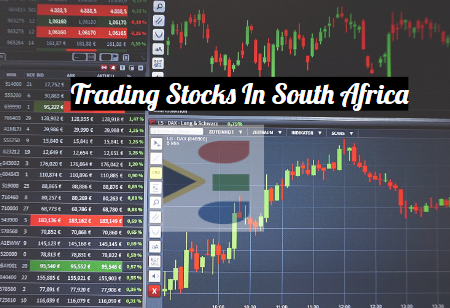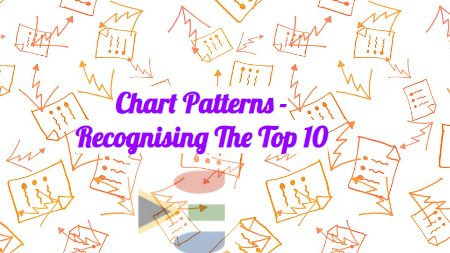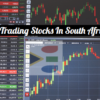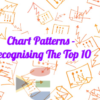If you’re interested in trading CFDs in South Africa, it’s important to know some of the best markets to trade, and the local regulations that apply to these financial instruments.
The financial regulator in South Africa for trading is the Financial Sector Conduct Authority (FSCA), and they have specific rules and requirements for CFD providers operating in the country that are designed to protect you as a retail trader.
You will definitely want to ensure that you trade with an appropriately regulated broker for your own security, and can check these out here; but what then are some of the best financial instruments and markets to consider trading as CFD?
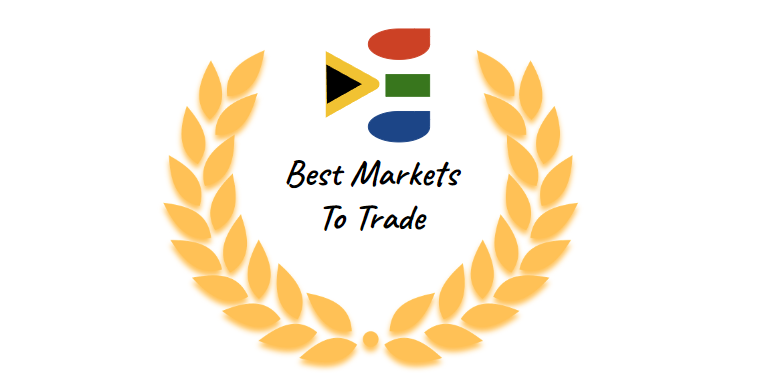
Our 20 Best Markets To Trade As CFD
Below you will find our top 20 financial instruments, but these are entirely subjective. Every CFD trader, day trader, and investor will have their own strategy; and in turn their own potential list of best markets to trade that match up with that strategy.
1. EUR/USD
This is one of the major forex pairs, or the major forex pair by volume, and one that is really very widely traded as a CFD. There is a huge amount of volume, and relative volatility in this trading pair that provides ample opportunity for day traders, and swing traders to take advantage of. You will usually find that your brokers’ maximum leverage allowance is set aside for trading major financial instruments such as the EUR/USD currency pair.
2. GBP/USD
This is another one of the major forex pairs, and it is also one that usually has plenty of daily news, and volatility. This can provide ample opportunity for those looking to take advantage of short-term movements in the market in either direction. From the period of around 3.30pm onwards, you will find volume highest in this pair, as both the US, and UK markets are on line simultaneously for an hour or so. In South Africa you will get an early start on US traders, and ample opportunity to fill up on GBP related news that could impact this pair before many ‘over the pond’ are active.
3.WTI Oil
This is a commodity that is often traded as a CFD and is one of the best markets to trade if you know what you are looking for from a macro level. Oil can be quite volatile, with double digit percentage swings in a day not unheard of during recent times. There is a lot of news and data that can impact price movements within oil moreso than some other instruments where CFD trading strategies call for technical trading and pattern recognition. All this can make WTI an ideal instrument for those looking to trade the news or data releases.
4. S&P 500
This is a stock index that tracks the 500 largest publicly traded companies in the US and is one of the best markets to trade when you have a view on the US economy, and market sentiment. It is a very popular index to trade as a CFD as it provides exposure to a large number of companies, and as an index, is less prone to earnings announcement shocks than an individual stock would be. The S&P 500 is often traded as the SPY ETF.
5. Gold
This is a precious metal that is often traded as a hedge against inflation, or as a safe haven during times of instability. Gold can be quite volatile at times, but usually within a predefined range, and there is a lot of news and data that can impact price movements. This is another financial instrument for trading those market news announcements or data releases that have inflation related topics.
6. Silver
This is another precious metal that is often traded as a CFD, but for different reasons than gold. Silver can be considerably more volatile than gold, and is traded a lot more using technical analysis, as well as with fundamental data. The movement in the price of silver can also be driven significantly by industrial supply and demand fluctuations.
7. EUR/JPY
The EUR/JPY is one of the most popular currency pairs in forex trading and it offers the opportunity to trade two very different economies. There are a couple of things to keep in mind when trading the EUR/JPY. First, it is important to pay attention to the release of economic data from both the European Union and Japan. This data can have a big impact on the direction of the currency pair. Second, it is also important to be aware of the Bank of Japan’s (BOJ) monetary policy. The BOJ has a history of intervening in the currency market, and this can cause big moves in the EUR/JPY.
8. Natural Gas
This is a commodity that is often traded as a CFD in a similar way to oil. Natural Gas is very much in the news at the moment due to a large proportion of the global supply, particularly for Europe, coming from Russia. In light of sanctions in place, it can be very volatile, with prices rising to highs not seen for many years. Natural Gas prices are impacted by macro news similarly to most energies, but can also be impacted significantly by severe weather events, with increased heating demands boosting demand, and reducing supply stores.
9. Copper
Copper is a great financial instrument to trade, and is one that takes a lot of its’ behaviour from the general economic health of industry. As a material that is very widely used across multiple industries, when there is significant economic growth, and buoyant demand, prices of Copper can be expected to rise. The inverse is also true in recessionary environments, depending on the reason for the recession. You can expect to see quite significant volatility if you choose to trade Copper as CFD.
10. Bitcoin
This is a digital currency that has become very popular in recent years. It is often traded as a CFD to take advantage of the huge volatility that is seen, and as such is one to keep a close eye on your risk levels and stops. Prices of Bitcoin can move on almost any topic, with some seeing a closer alignment between cryptocurrency prices and growth stocks; indicating the level of perceived risk seen by traders, and markets.
11.Nasdaq 100
This is a stock index that tracks the 100 largest publicly traded companies in the US. It is a very popular index to trade as a CFD as it provides exposure to a large number of companies, and can be quite volatile.
12. Dow Jones Industrial Average (DJIA)
This is a stock index that tracks the 30 largest publicly traded companies in the US. It is a very popular index to trade as a CFD as it provides exposure to a large number of companies, and can be quite volatile.
13. Nikkei 225
This is a stock index that tracks the 225 largest publicly traded companies in Japan. It is a very popular index to trade as a CFD as it provides exposure to a large number of companies, and can be quite volatile.
14. FTSE 100
This is a stock index that tracks the 100 largest publicly traded companies in the UK. It is a very popular index to trade as a CFD as it provides exposure to a large number of companies, and can be a good market to trade if you have a basic understanding of UK economic prosperity, or technical analysis. Announcements from the BoE should also be watched carefully for macro fundamental movements.
15. DAX 30
This is a stock index that tracks the 30 largest publicly traded companies in Europe’s largest economy, Germany. There is a lot of demand for trading DAX30 as an index, and price is driven often by both the general economic environment in Europe, as well as news and data releases. As an index with just 30 companies included, the DAX30 can be assessed by its’ component parts slightly easier than some of the larger indices traded as CFDs.
16. VIX
This is an index that tracks the volatility of the US stock market. It is often traded as a CFD, and can be quite volatile itself, when there is volatility in US equities. There are a lot of data points that can impact price movements, and Federal Reserve announcements will also be a big driver of VIX volatility. The VIX doesnt care whether volatility is of the upwards, or downward kind, only that volatility persists.
17.GBP/EUR
This is a cross currency pair that is widely traded as the geographically close currencies of the UK and Europe are considered against one another. Heavily traded during the European trading session, you can expect reasonable volatility with the GBP/EUR pair. As one of the ‘majors’ offered, this pair comes with large levels of leverage available with most brokers. Due to timezone similarities with South Africa, this is a good major pair to watch that usually delivers maximum volatility during usual working hours.
18.TSLA
This is the stock of Tesla, Inc., a popular electric vehicle manufacturer that likely needs no introduction. Tesla is traded very heavily by options traders, and as such there is a lot of leverage in play that can cause significant volatility on a day to day basis. This leverage is also used by CFD traders to turn Tesla into one of the best markets to trade even on shorter timeframes., and can be quite volatile. Elon Musk is also known to comment freely, with rather significant implications on price action, so you can watch his Twitter feed for additional data that may move things at Tesla.
19.Government Bonds
These are bonds that are issued by governments. They are often traded as CFDs, and can be quite volatile. There is a lot of news and data that can impact price movements, and this can make them an ideal instrument for those looking to trade the news or data releases.
20.ETFs
ETFs are exchange traded funds, and are a popular way to trade a variety of assets. Whilst not a direct asset ticker that you can trade, there are a variety of ETFs that can be traded as CFDs that will give you exposure to very specific segments of an economy. Industries such as semiconductors, energy, tech, and more can all be traded as ETFs with less volatility than a single stock.
Best Financial Instruments To Trade? More of an experiment than an exact science
I hope you get some value from our own favourite list of financial instruments to trade, but if you don’t find something for you, don’t fret, there are plenty more options besides!
These are just a few of the many instruments that are available to trade as a CFD. There are many more, and the best way to find out which ones may be right for you is to experiment, find out what works best for you, and if in doubt check out some CFD trading tips,. The most important thing you will want to be sure of before you begin with any new financial instrument is to have a solid understanding of the risks involved.
